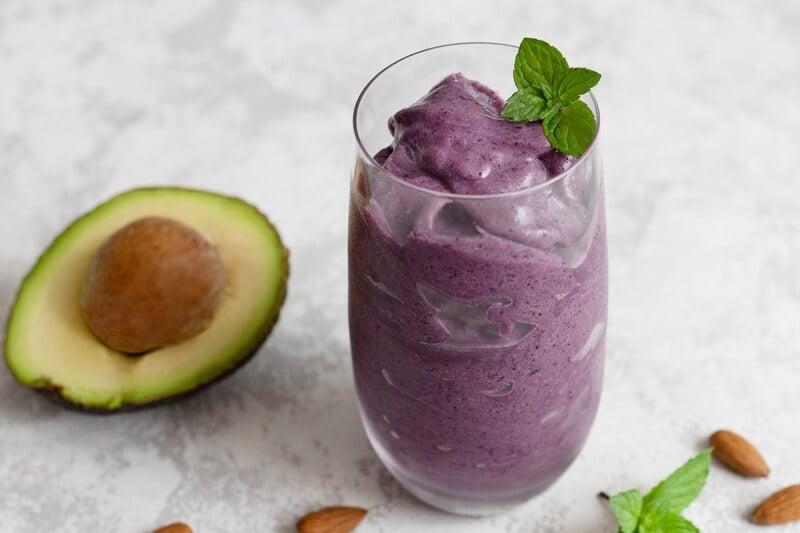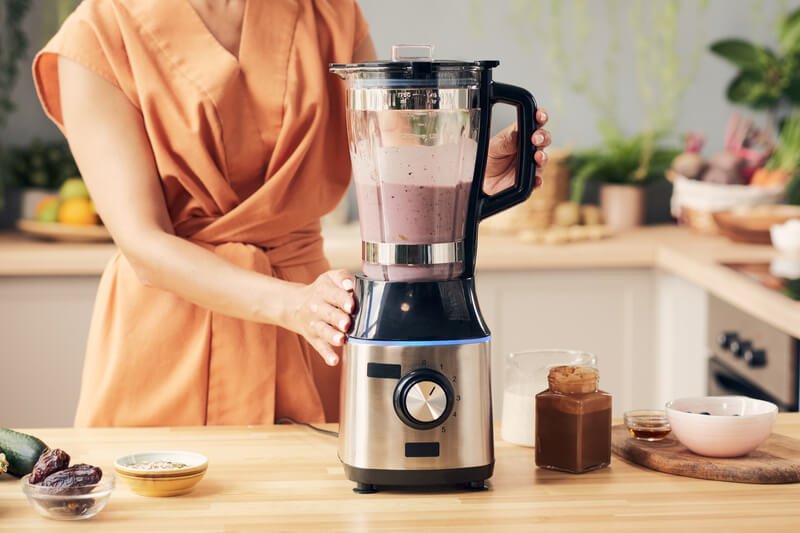With so many variations to smoothie recipes available these days, it can be hard to keep track of allergens and animal byproducts such as milk in what you’re drinking.
Vegans and lactose-intolerant people are left wondering, is there milk in smoothies?
Depending on the type of smoothie base chosen, the blended drink may or may not contain milk. Most smoothie recipes do call for some form of dairy to add creaminess, whether it’s in the form of a yogurt, milk product, protein powder, or some kind of fruit juice.
Keep reading if you’d like to learn more about the milk content in certain smoothies.
I’ll also teach you about the other dairy content commonly found in smoothie recipes and how to avoid milk and dairy in your smoothies.
Is There Milk In Smoothies?
Milk is a common base for smoothies due to the creamy texture it provides. However, you can also use juice, water, or non-dairy milk.
According to the United States Department of Agriculture, smoothies included in child nutrition programs in the US commonly contain liquid milk or yogurt as a base.

Milk Content In Smoothies
Consider the following milk content in smoothie recipes commonly served in the United States:
Jamba Juice Classic Watermelon Breeze | Panera Strawberry Banana Smoothie | McDonald’s Strawberry Banana Smoothie | |
|---|---|---|---|
Milk Content | Milk, whey (milk protein), and skim milk | Whole milk plain Greek yogurt (containing cultured pasteurized skim milk and cream) | Milk and low-fat smoothie yogurt (containing cultured Grade A reduced fat milk) |
Is There Dairy In Smoothies?
Milk, of course, is a kind of dairy that often serves as a smoothie base, but other dairy products like yogurt contain cultured milk in their makeup.
Furthermore, you’ll find dairy products like cottage cheese as a base in certain smoothies, as well as sweet cream products and protein powders, which are derived from milk proteins.

Related: Is There Milk in Acai Bowls?
Smoothies Without Dairy or Milk
Luckily, finding non-dairy and non-milk substitutes for smoothie bases is not too difficult.
Vegans and anti-lactose consumers can easily choose from one of many non-dairy kinds of milk.
The creamiest ones that provide the closest texture to a milk or yogurt smoothie include cashew milk, almond milk, and coconut milk.
There are even plant-based yogurt alternatives for those wanting a thicker, creamier fruit smoothie without milk.
And you can always opt for some kind of fruit juice (e.g. orange juice) or water in place of milk or milk protein bases.
However, it will give you a thinner smoothie than a milk base.
If you need some ideas, here's a video from NutritionRefined with seven healthy (and delicious) vegan smoothies!
Final Thoughts
So, is there milk in smoothies? Most smoothies have a milk base, milk protein base, or a yogurt base (which contains milk).
However, if you are vegan or lactose-intolerant, you can commonly find non-dairy substitutes for milk, such as plant-based milk, vegan yogurt, and fruit juices.
